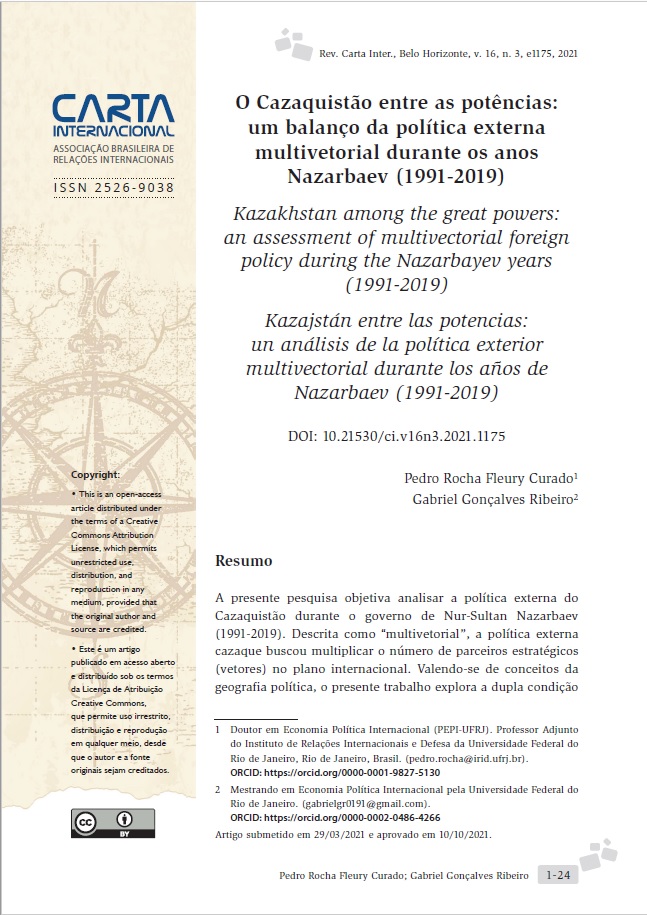Kazakhstan among the great powers
an assessment of multivectorial foreign policy during the Nazarbayev years (1991-2019)
DOI:
https://doi.org/10.21530/ci.v16n3.2021.1175Abstract
The present research aims to analyze the foreign policy of Kazakhstan during the government of Nur-Sultan Nazarbayev (1991-2019). Described as “multi-vector”, Kazakh foreign policy sought to multiply the number of strategic partners (vectors) at the international level. Drawing on concepts from political geography, this paper explores the dual condition of buffer-state and landlocked state to emphasize the limits of Kazakh multivector insertion.
To this end, the text examines the evolution of the country’s relations with Russia, China and Western countries, differentiating the participation of each vector in themes related to the military and economic spheres.
Downloads

Published
How to Cite
Issue
Section
License
Copyright (c) 2021 Pedro Rocha Fleury Curado, Gabriel Gonçalves Ribeiro

This work is licensed under a Creative Commons Attribution 4.0 International License.
Authors who publish with this journal agree to the following terms:
- Authors retain copyright and grant the journal right of first publication with the work simultaneously licensed under a Creative Commons Atribuição 4.0 Internacional that allows others to share the work with an acknowledgement of the work's authorship and initial publication in this journal.
- Authors are able to enter into separate, additional contractual arrangements for the non-exclusive distribution of the journal's published version of the work (post it to an institutional repository or publish it in a book, for example), with an acknowledgement of its initial publication in this journal.


